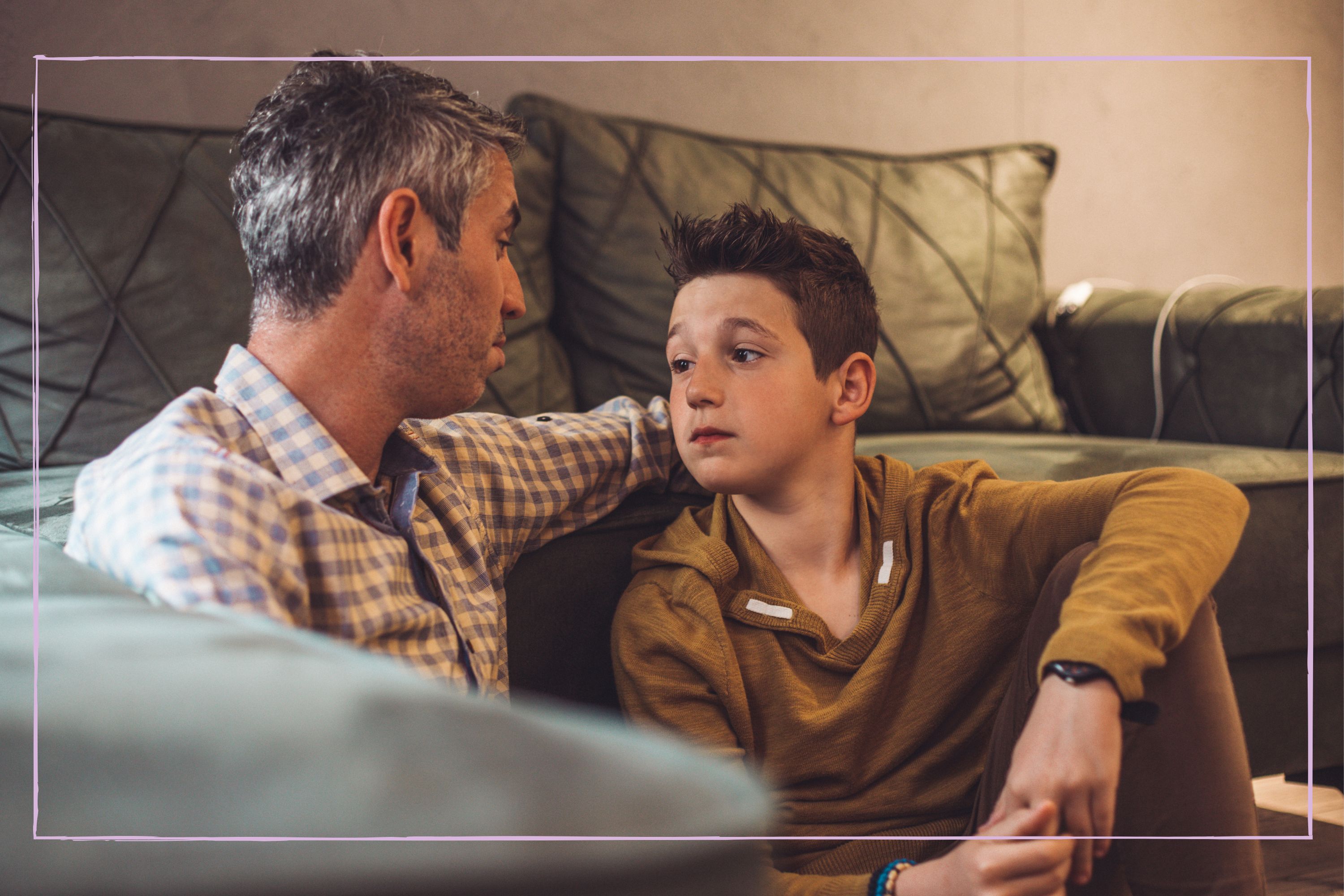
In the age of social media, children are exposed to all sorts of news stories they were once protected from. But how should parents approach talking to kids about the tragic events they may hear about? A psychologist shares her thoughts.
Keeping bad news from reaching kids' eyes and ears is more difficult now than ever before. In the age of social media, it's not just restricted and unsafe content kids are coming across at an alarming frequency, but news stories covering tragic events that, while broadcast on TV, are inappropriate when kids' brains are still developing and they can't understand properly what they're seeing.
So should kids be protected from the news?
"Yes, as much as you can and is realistic," psychologist Dr Martha Deiros Collado said on Instagram. But it's almost inevitable that kids will hear about big news events, whether it's on social media or the school playground, so what should parents do?
Their interest in these tragic events, Dr Martha says, stems from curiosity. But you don't have to satisfy their interest completely and should share only what is age appropriate.
For children up to the age of eight, the expert says, they won't understand the true meaning of words usually associated with tragic news stories such as 'death' or 'attack' and this makes explaining things to them unhelpful and unnecessary. But for those aged eight and above, "Children have greater access to technology and they understand death is final. They are more likely to understand 'knife attack' and feel scared for themselves and others," Dr Martha explains.
For these reasons, she recommends only talking to your kids about news events if they've asked about them first. And, if they do, she's shared the seven most important things to keep in mind when having conversations on big topics.
7 tips for talking to kids about tragic news stories
- You don’t avoid the conversation if they bring it up or it affects the personally.
- You lean in and listen to your child
- You offer them a safe space for all their feelings
- You reassure them they are safe (and you are too)
- Stay honest. What you don't tell them they will make an answer for or someone will tell them. And it's always worse when it's not come from you.
- Keep it simple and age appropriate
- Normalise all feelings
Dr Martha's biggest piece of advice, though, is that you don't have to have the answers. "A child who asks a question has already considered an answer. Focus less on having answers and more on listening to your child," she said. Instead of giving a response to a question, ask your child what they think and feel about what they've heard and let them talk about their worries, reassuring and supporting them.
"You do not need to have all the answers. Your presence and offering a safe space to talk is the most important," she added.
She gives the example of a child asking 'will this happen again' after hearing of a tragic story. In response, she recommends saying something along the lines of, "It sounds like you are feeling scared. I am too. It's normal to feel this way. What I know is that we are safe right now. What might help you feel safe? What can I do? Let's work it out.
Parents were quick to take to the comments section and praise Dr Martha for her insight, sharing how her tips have already been helping. One parent shared, "Thank you for this. My seven-year-old caught the news this morning and had so many questions. I've been worried all day I handled it badly and this has helped reassure me. There were more questions tonight before bed so it has been something she has obviously been processing today."
Another added, "This is the reason the news is never on in my home or car and I ask all my family to do the same while they are caring for the kids. They don’t need to know about these atrocities at this young age."
There are plenty of expert tips and tricks that can make navigating parenting a little bit easier, like the 8 expert tips to teach kids emotional intelligence, and why it's never too late for teenagers. There are also other parents to learn from like the mum who has shared the 9 things she's doing to teach her teenage son about 'toxic masculinity' and the two mums who've shared their very different opinions on whether or not it's it's ever OK to discipline other people’s kids.







